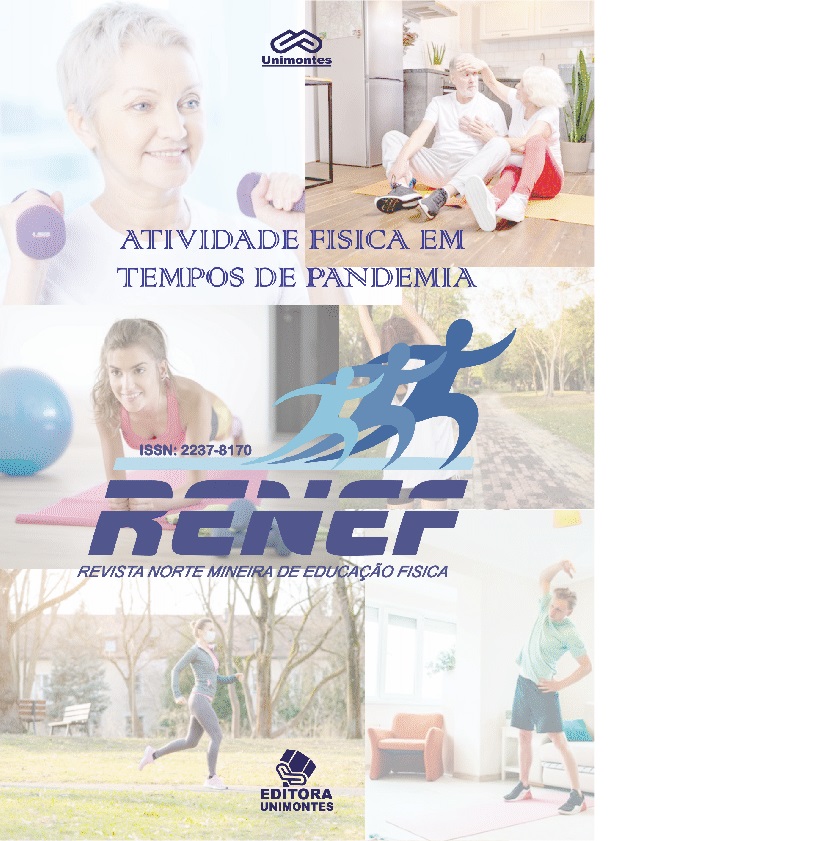ASSOCIATION BETWEEN LITERACY IN HEALTH AND THE PRACTICE OF REGULAR PHYSICAL ACTIVITIES AMONG ELDERLY: AN INTEGRATIVE REVIEW
DOI:
10.46551/rn2021121700047Abstract
Aging is followed by physiological changes that can compromise the performance of the elderly. The practice of regular physical activities (AFR) is recognized as an important part of health promotion and disease prevention. Health literacy (AS) is related to people's abilities to understand aspects of self-care and health system care to make appropriate decisions and has proved to be one of the main determinants in health. To identify, through an integrative review, scientific evidence of an association between the level of health literacy and the practice of regular physical activities among the elderly. Articles published in Portuguese, English and Spanish, available in the Bireme and Pubmed databases, from 2004 to 2018 were included. The critical analysis was based on methodological adequacy, sample selection and level of evidence. Eight were included and made up the sample. According to the analyzes, it was possible to verify that low health literacy increases the risk factors for physical decline among the elderly (non-existent or insufficient AFR and consumption); inadequate health literacy was associated with a low level of compliance with the guidelines for conducting AFR; active learning influences the improvement of health literacy rates; health literacy assessment instruments must be validated and considered reliable. Literacy in inadequate or low health is associated with insufficient levels or no practice of physical activity, which implies deleterious changes in the body of the elderly.
Key words: Elderly; Physical exercise; Physical activity; Health literacy
Downloads
References
ADAM R.J, PIANTADOSI C, ETTRIDGE K, MILLER C, WILSON C, TUCKER G et al. Functional health literacy mediates the relationship between socio-economic status, perceptions and lifestyle behaviors related to cancer risk in an Australian population. Patient Educ Couns. 2013;91(2):206-12.
ANDRADE F.L.J.P, LIMA J.M.R, FIDELIS K.N.M, LIMA J.J.K.C. Incapacidade cognitiva e fatores associados em idosos institucionalizados em Natal, RN, Brasil. Rev. Bras. Geriatr. Gerontol, 2017; 20(2): 186-197.
ASSUMPÇÃO L.O.T, GOLIN C.G. Reflexão sociológica sobre o conceito de habitus relacionado à prática de atividade física. R. bras. Ci. e Mov 2016;24(3):158-166.
BERKMAN N.D, SHERIDAN S.L, DONAHUE K.E, HALPERN D.J, CROTTY K. Low health literacy and health outcomes: an updated systematic review. Ann Intern Med. 2011 Jul 19;155(2):97-107.
GUNTZVILLER L.M, KING A.J, JENSEN J.D, DAVIS L.A. Self-Efficacy, Health Literacy, and Nutrition and Exercise Behaviors in a Low-Income, Hispanic Population. J Immigr Minor Health. 2017; 19(2):489-493.
GOBBI S, VILLAR R, ZAGO A. Bases teórico-práticas do condicionamento físico. Guanabara-Koogan; 2005.
KOBAYASHI L.C, WARDLE J, WOLF M.S, VON WAGNER C. Health Literacy and Moderate to Vigorous Physical Activity During Aging, 2004-2013. Am J Prev Med. 2016 Oct;51(4):463-72.
LO BIONDO-WOOD G, HABER J. Pesquisa em enfermagem: métodos, avaliação crítica e utilização. Guanabara Koogan; 2001.
MARTINS A.M.E.B.L, BAUMAN C.D, ÁVILA W.R.M, FARIAS P.K.S, PEREIRA E.J.P, FERREIRA F.N., et al. Elaboração de um instrumento de alfabetização em saúde quanto à prática de atividade física entre diabéticos. Revista Eletrônica Acervo Saúde 2018; 12:S1202-S1213.
MELNYK B.M, FINEOUT-OVERHOLT E. Making the case for evidence-based practice. In: MELNYK B.M, FINEOUT-OVERHOLT E. Evidence-based practice in nursing & healthcare. A guide to best practice. Philadelphia: Lippincot Williams & Wilkins; 2005. p.3-24.
MUIR K.W, CHRISTENSES L, BOSWORTH H.B. Health literacy and glaucoma. Curr Opin Ophthalmol. 2013; 24 (2): 119-24.
SILVEIRA R.C.C.P. O cuidado de enfermagem e o cateter de Hickman: a busca de evidências . 2005. Dissertação - Universidade de São Paulo, Escola de Enfermagem de Ribeirão Preto, 2005.
SOUZA M.T, SILVA M.D, CARVALHO R. Revisão integrativa: o que é e como fazer. Einstein 2010; 8(1): 102-106.
SORENSES K, BROUCKE S.V.D, FULLAM J, DOYLE G, PELIKAN J, SLONSKA Z et al. Health literacy and public health: A systematic review and integration of definitions and models. BMC Public Health 2012; 12(80).
SMITH S.G, O’CONOR R, CURTIS L.M, WAITE K, DEARY I.J, PAASCHE-ORLOW M., et al. Low health literacy predicts decline in physical function among older adults: findings from the LitCog cohort study. J Epidemiol Community Health 2015;69:474-480.
POLIT D.F, BECK C.T, HUNGLER B. P. Fundamentos de pesquisa em enfermagem: métodos, avaliação e utilização. Artmed, 2004.
PLUMMER L.C, CHALMERS K.A. Health literacy and physical activity in women diagnosed with breast cancer. Psychooncology 2017; 26(10):1478-1483.
UEMURA K, YAMADA M, OKAMOTO H. Effects of Active Learning on Health Literacy and Behavior in Older Adults: A Randomized Controlled Trial. J Am Geriatr Soc. 2018 ;66(9):1721-1729.
URSI ES, GALVÃO C.M. Prevenção de lesões de pele no perioperatório: revisão integrativa da literatura. Rev Latino-am Enfermagem 2006; 14(1):124-31.
ZAITUNE M.P.A, BARROS M.B.A, CÉSAR C.L.G, CARANDINA L, GOLDBAUM M, ALVES M.C.G.P. Fatores associados à prática de atividade física global e de lazer em idosos: Inquérito de Saúde no Estado de São Paulo (ISA-SP), Brasil. Cad. Saúde Pública 2010; 26(8): 1606-1618.


















